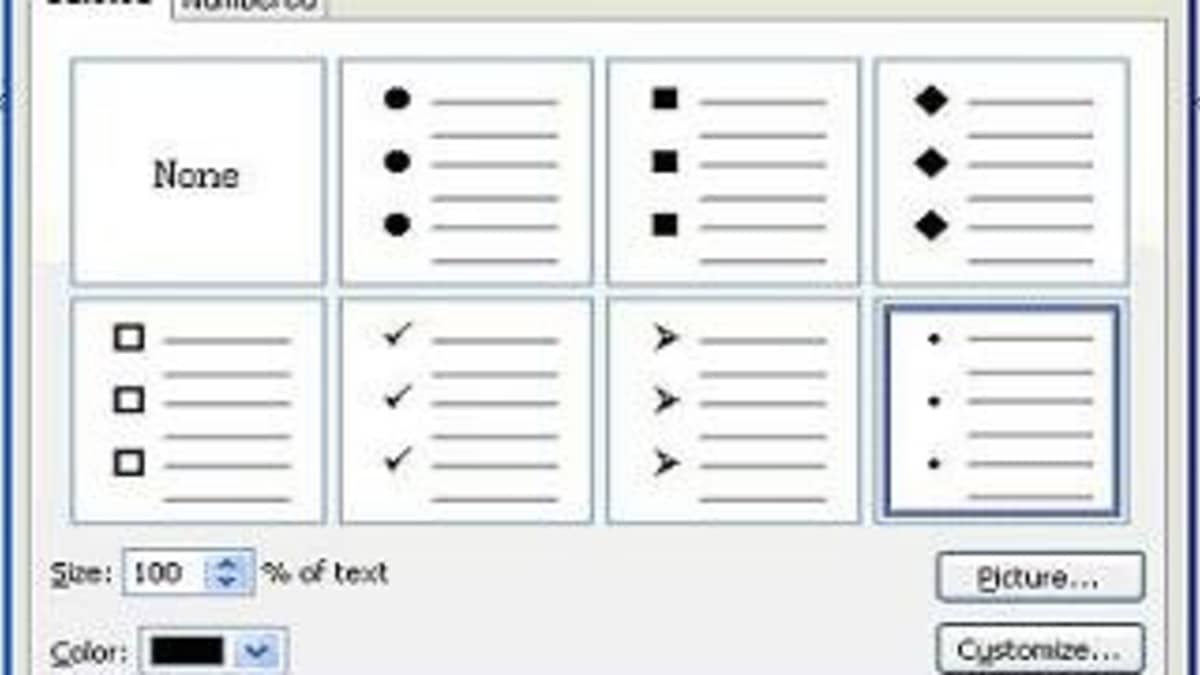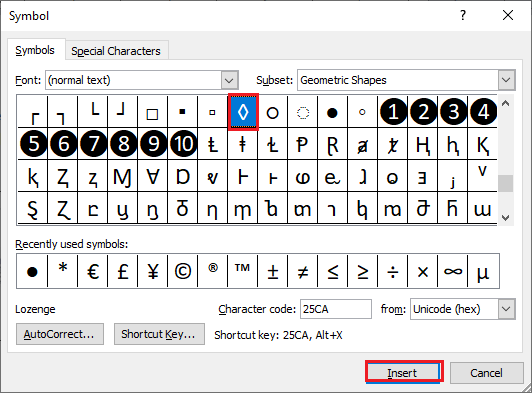
:max_bytes(150000):strip_icc()/how-to-add-bullet-points-in-excel-4693649-1-b299413c5e884df282a4d3cd738bc0c7.png)
- #Microsoft command for bullet point for mac os
- #Microsoft command for bullet point pro
- #Microsoft command for bullet point software
- #Microsoft command for bullet point Pc
#Microsoft command for bullet point for mac os
Many users say it is the best version of Word for Mac OS ever created. Word 5.1 for Mac OS, released in 1992, was a very popular word processor owing to its elegance, relative ease of use and feature set.
#Microsoft command for bullet point pro
After MacWrite Pro was discontinued in the mid-1990s, Word for Mac OS never had any serious rivals. Within a few months, Word 3.0 was superseded by a more stable Word 3.01, which was mailed free to all registered users of 3.0. Word 3.0 included numerous internal enhancements and new features, including the first implementation of the Rich Text Format (RTF) specification, but was plagued with bugs. The second release of Word for Mac OS, shipped in 1987, was named Word 3.0 to synchronize its version number with Word for DOS this was Microsoft's first attempt to synchronize version numbers across platforms. After its release, Word for Mac OS's sales were higher than its MS-DOS counterpart for at least four years. It fulfilled a need for a word processor that was more capable than MacWrite. įollowing the precedents of LisaWrite and MacWrite, Word for Mac OS added true WYSIWYG features. It was also notable for its very fast cut-and-paste function and unlimited number of undo operations, which are due to its usage of the piece table data structure. This was made easier by Word for DOS having been designed for use with high-resolution displays and laser printers, even though none were yet available to the general public.
#Microsoft command for bullet point software
In 1985, Microsoft ported Word to the classic Mac OS (known as Macintosh System Software at the time). However, Microsoft steadily improved the product, releasing versions 2.0 through 5.0 over the next six years. It was not initially popular, since its user interface was different from the leading word processor at the time, WordStar. Advertisements depicted the Microsoft Mouse and described Word as a WYSIWYG, windowed word processor with the ability to undo and display bold, italic, and underlined text, although it could not render fonts. Unlike most MS-DOS programs at the time, Microsoft Word was designed to be used with a mouse. That year Microsoft demonstrated Word running on Windows.

#Microsoft command for bullet point Pc
Free demonstration copies of the application were bundled with the November 1983 issue of PC World, making it the first to be distributed on-disk with a magazine. Its name was soon simplified to Microsoft Word.

Microsoft announced Multi-Tool Word for Xenix and MS-DOS in 1983. Simonyi started work on a word processor called Multi-Tool Word and soon hired Richard Brodie, a former Xerox intern, who became the primary software engineer. In 1981, Microsoft hired Charles Simonyi, the primary developer of Bravo, the first GUI word processor, which was developed at Xerox PARC. Main article: History of Microsoft Word Origins

Subsequent versions were later written for several other platforms including IBM PCs running DOS (1983), Apple Macintosh running the Classic Mac OS (1985), AT&T UNIX PC (1985), Atari ST (1988), OS/2 (1989), Microsoft Windows (1989), SCO Unix (1990), and macOS (2001).Ĭommercial versions of Word are licensed as a standalone product or as a component of Microsoft Office 365, or Microsoft 365 Premium subscription, Windows RT or the discontinued Microsoft Works suite. It was first released on October 25, 1983, under the name Multi-Tool Word for Xenix systems. Microsoft Word is a word processing software developed by Microsoft.


 0 kommentar(er)
0 kommentar(er)
